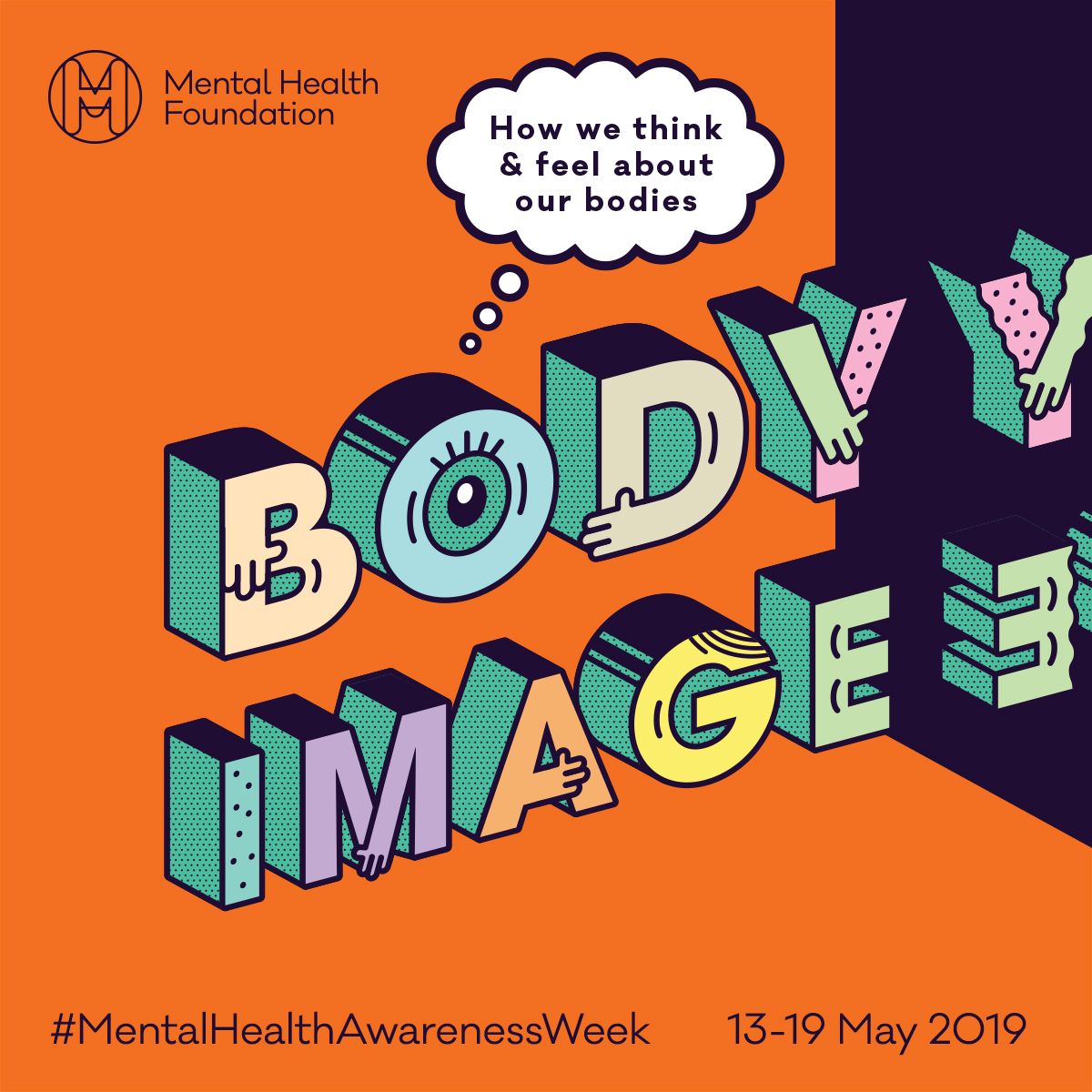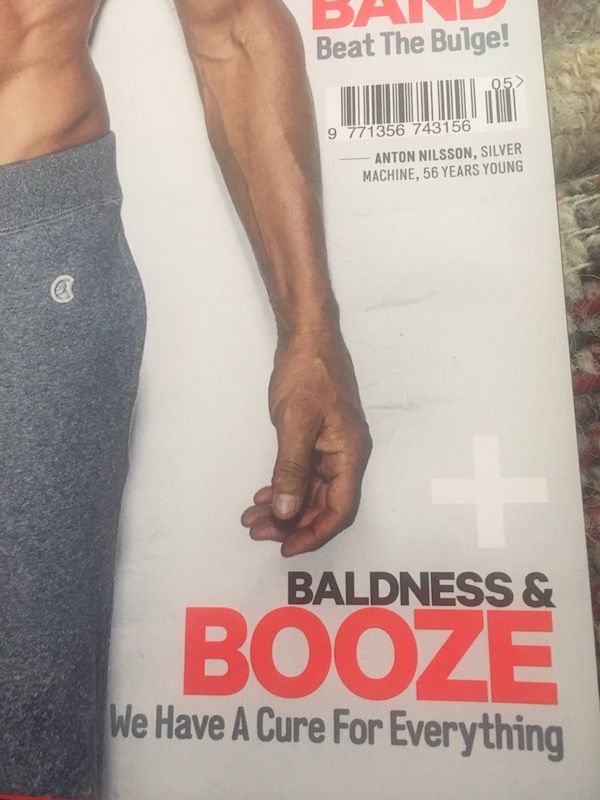Body Image...
Two words but how do they make you feel?
I know for a long time the image I saw of my body was different to the image others saw and I know so many of you still feel the same way.
Is that always the case? Most importantly, is it the case with you? Does it even matter?
The short answer to the latter question is yes. Yes, it really does matter. In fact, the reason it matters is the very reason that #bodykind has been chosen as the focus for the UK's Mental Health Awareness Week this year. The image we have of our body affects our mental health, it can also be contributory to our physical health; so really important right?!

Body Image = Fit and Healthy Body
It's fair to say that negative body image is an internal battle for many men and women of all ages in 2019, but where does it come from? Well, personally, I think you only need to take a quick look at Instagram photos hastagged beauty, fitness, strong, healthy and anything remotely related to begin to understand the barage that media such as this can have on our thoughts. Images of predominantly young, skinny, flawless, toned, ripped, (posed, filtered and photoshopped) people adorn these covers supposedly representing 'us'.




If you're noticing what I'm noticing just from those screenshots, there's not a lot of body types, ages and cultures represented right? In fact the dog in the healthy screenshot is probably the most diverse image of the whole lot... and to be fair, he does look healthy (and happy - clearly not worried about his own body image!).
And it doesn't stop there... 'perfect' body image mascarades as health in our magazines...


According to the cover of Men's Health, a 'fit' body is a toned, ripped, muscly, hair-free body; use of words such as 'harder', 'leaner', 'muscle' and the juxtapositioning of 'Dadbod' with 'Dad Strong' have unavoidable connotations that this is what a healthy, fit body looks like. But they don't stop there, not only is it apparently not possible to be fit without defined pecs and abs, the juxtaposition of 'baldness' and 'booze' is clearly suggesting the two are as toxic as each other... and 'a cure'?! No wonder men are becoming so worried about natural hair loss and of course, Nikolaj Coster-Waldau features on the cover - topless - to prove to you that this is possible and you should look like him!
Unfortunately, April's edition of Women's Health magazine tells a similar story...


A clearly airbrushed, completely flawless, croptop clad Gabrielle Union is presented to us on the cover... there's no need for her to be wearing so little (she's equally revealing inside) as the article is about a strong woman who runs her own business, is raising a surrogate daughter and navigating the difficulties of doing so as a black woman in America; but there's those connotations again. To the left side of her there's further young, skinny, body image inferences to health in the juxtapositioning of 'more energy', 'fat burn' and 'younger skin'. To the right, we see a much promoted idea in today's society that we can quick fix our body in 21 days which of course links to toning advice from Hollwoods 'hottest' PT; even the word 'tone' is well chosen because what woman would want to look 'strong' , 'harder', or 'leaner' like a man?!
No wonder we think healthy has a defined 'look'.
No wonder we think healthy means changing the way we look.
No wonder we hold such negative images of our own bodies whilst striving to match them with these false ideals.
Healthy, Fit and Strong Does Not Have 'an Image'
It's understandable why we've associated health, fitness and strength with this idea of a particular body shape, size, age and look; it's an almost unavoidable association to make. But it's just not true. Honestly, take a look at the line-up of a running race, a cycling sportif, a strength event such as StrongFirst, an open CrossFit competition, a Tough Mudder obstacle race, you'll see people of all ages, bodies of all shapes and sizes but each and every person present trained, fit and strong enough in body and mind to take on the event of their choice.
It works the other way too, just because a body looks built of muscle, it doesn't mean that person can lift as much as you; just beause a body looks lean, it doesn't mean they can run as far as you; just beause a body looks young, it doesn't mean they have as much energy to play with their kids as you. Stop comparing yourself and stop judging others, positively or negatively simply on the cover in front of you. You never know the truth of what's inside until you read deeper!
Spring Clean for your Mental Health
Research by the UK's Mental Health Foundation has found that:
Higher body dissatisfaction is associated with a poorer quality of life, psychological distress and the risk of unhealthy eating behaviours and eating disorders.
If we appreciate that the majority of images we are presented with in our Western media are in some way contributing to this disatisfaction with our own bodies, it makes sense to try avoid exposure to something which is potentially harmful to our mental health as much as possible. In which case, start a spring clean now. Go through your Instagram, Twitter, Pinterest, magazines and get rid of anything which is reinforcing a false image of a 'perfect' body; get rid of anything which causes you to compare yourself negatively to what you see; get rid of anything which makes you feel 'lesser' as a result of viewing it.
There are so many more accounts to add, hashtags to follow and information to learn that embraces all body types and appreciates that it is not the appearance of a body which denotes what it's capable of achieving. Get rid of the #fitspo #influencers and start following real, inspirational people who truly embrace all body types.









This will help, but it can't end there. Our perception of a negative body image can also come from the way others speak to and about us. Think about the judgement you make on others. Comments don't even have to be overt to cause harm. Have you ever heard yourself exclaim at how someone was capable of achieving a strength or sporting achievement because they don't look the type? Have you ever greeted someone you haven't seen in ages on how slim they look? Have you ever pulled at parts of your body or covered them up in shame whilst your friend (or child!) looks on? Our own body image is affected by the words, behaviours and attitudes of others. Be mindful of how you speak about yourself in front of others and how you speak to others also. Remember, the way a person looks isn't the most important thing about that person either so why not reinforce for them how kind, caring, intelligent, awesome, inspiring, motivating, friendly... etc, etc... they are?
The #bodypositive movement is certainly trying to make positive moves in the right direction with the overiding message that all bodies are worthy of love, care and space in the world but if you're not ready for that yet, the idea that you have to love your body can be equally as difficult and damaging to your mental health.
I prefer the #bodyneutrality approach. Put simply, why should our bodies even be the most important thing about us? We don't need to love every lump and bump, we don't have to proudly strut about in a bikini to make ourselves feel better, but we do need to place less emphasis on the importance of our body's appearance in our lives. If our body's image is actually unrelated to our ability to achieve great things physically (and intelligently) then why does it matter so much what it looks like? It doesn't. Let's help our own mental health battles and those of others by beginning to remove the pressure to look a certain way. If it is bad for our mental health, it's also not good for our physical health either; how many activities have you 'put off' over the years until you've lost X lbs or until you fit into that outfit? When we feel better about ourselves and less hung up about the way we look, we look after ourselves better all round which may mean moving more because it's fun, eating in a more balanced way, drinking less alcohol, drinking more water, getting more fresh air. All of which are going to improve our lives significantly more than achieving an arbitrary physical appearance.
With one in five adults experiencing feelings of shame about their body image in the last year, 1/3 of adults feeling anxious or depressed as a result of body image concerns in the past year, and 40% of teenagers acknowledging that social media makes them feel worried about their own appearance, the one thing we can't do is ignore it. Mental Health Foundation, Body Image Report, 2019
As with anything which has a negative consequence in our lives we need to take action now to help ourselves and others navigate this. If you feel you need help and support in doing so, talk to someone. Start with removing the negative apps, posts and hashtags; read about body image and understand more about it; seek out more positive social media influences; talk to a friend, family member, teacher, coach or a trusted confidant; approach your GP; seek out a therapist... whatever feels right for you, take a deep breath and take a step forwards in improving your mental health today.
